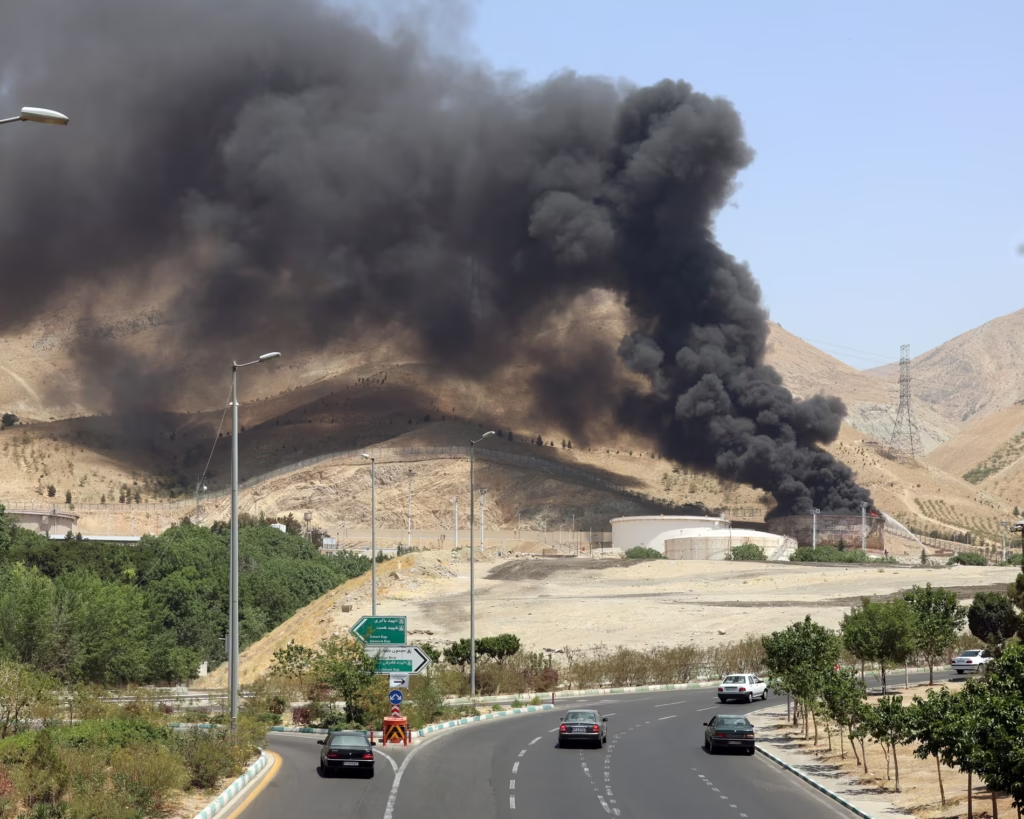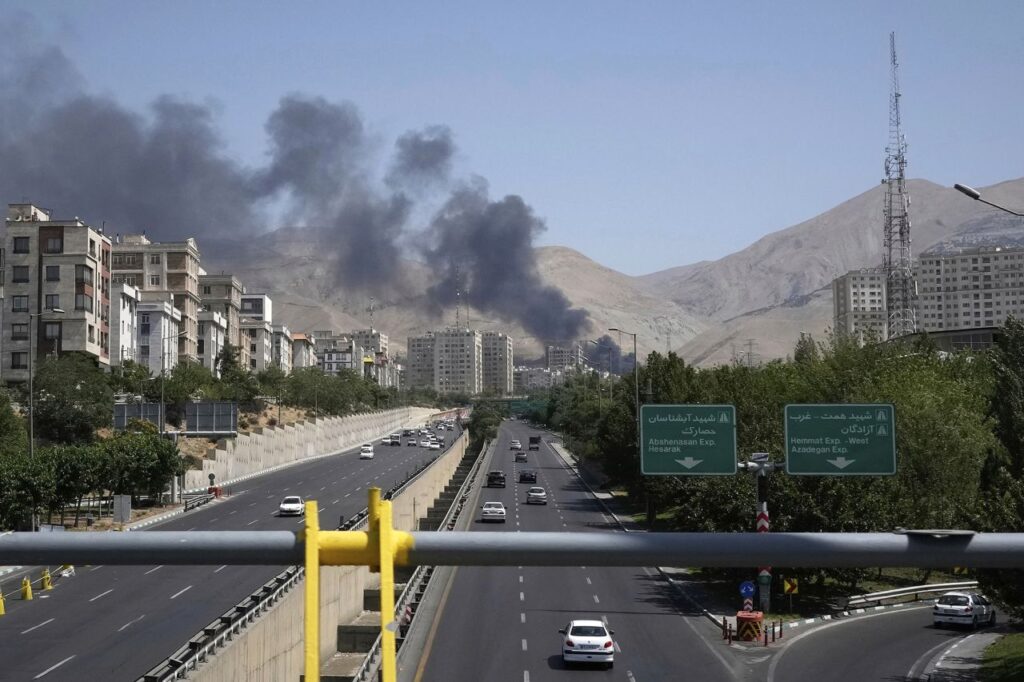Special Correspondent is the byline.
The fourth and most intense day of Israel and Iran’s armed conflict began today, with both countries launching well-coordinated and lethal attacks.
. Hundreds of people have died as a result of the intensifying fighting, which has also damaged regional infrastructure and brought the Middle East dangerously close to full-scale conflict.

Tel Aviv and Haifa Are Hit by an Early Morning Barrage
Iranian forces launched a fresh round of missiles and drones toward Ashkelon, Haifa, and Tel Aviv, among other cities in central Israel, in the early hours of Monday. In Tel Aviv, at least eight civilians lost their lives and more than 70 were wounded. Although several rockets were intercepted by Israeli air defense systems, others were able to pass through the protective levels of David’s Sling and the Iron Dome.
American workers were uninjured after a rocket apparently dropped close to the U.S. Consulate in Tel Aviv. It also struck the northern industrial zone of Haifa, causing a large fire in a gas storage facility that took hours to put out.
Israel’s Quick Reaction: Alleged Air Superiority
Israel retaliated by launching heavy airstrikes in various Iranian regions.. The Israeli Defense Forces (IDF) said their operations targeted 10 Revolutionary Guard command centers in Tehran, Qom, and Esfahan, as well as more than 120 missile positions.
Israeli officials declared they had gained “air superiority over important sections of Iran” after Israeli fighter jets, such as F-35Is and F-15s, were spotted patrolling over Iranian airspace. This assertion was viewed as both strategic and symbolic.

Casualty Counts Increase Rapidly
Since the battle started, Iranian officials have stated that at least 224 people have died, including more than 90 civilians. Hospitals in Tehran and Esfahan are overcrowded with injured people—more than 1,400 in all.
The number of civilian deaths in Israel has increased to 24, and throughout the four days of conflict, about 500 people have been injured.
Infrastructure and Oil Facilities Are Targeted
The energy infrastructure of both countries has been targeted. Iran said the attack affected a number of its gas pipelines and oil refineries in Khuzestan. Israel’s energy ministry reported that refineries in Ashdod and Haifa were temporarily closed due to flames.
As a result, fuel prices have skyrocketed in both nations, power outages have occurred, and concerns about a wider regional economic collapse in the event that assaults persist have increased.
Iran Is Considering Leaving the Nuclear Treaty
An important development was that Iran’s parliament began debating a measure to withdraw from the Nuclear Non-Proliferation Treaty (NPT).. The action has frightened international powers, despite Iran’s president emphasizing that the country is not pursuing nuclear weapons.
Concern was raised by the International Atomic Energy Agency (IAEA) following the disruption of surveillance at Iran’s Fordow and Natanz sites. According to preliminary reports, important enrichment facilities in Natanz may have been damaged.
Global Response and G7 Emergencies Discussions
The G7 summit in Canada, where world leaders hurriedly explored diplomatic methods to halt the bloodshed, was overshadowed by the ongoing war.
“The United States would not hesitate to intervene immediately if American lives or military assets are threatened,” U.S.President Donald Trump informed reporters during the meeting.
In the meantime, European leaders demanded an immediate halt to hostilities and the continuation of backchannel talks that had been place in Oman.
Turkey demanded an emergency meeting of the Organization of Islamic Cooperation (OIC), while China and Russia jointly issued a statement recommending moderation.
Large-scale displacement and civil unrest
There is widespread panic in major Iranian cities. According to reports, people from Tehran are escaping north to the provinces of Mazandaran and Gilan. Supermarkets and gas stations are overcrowded, and in an effort to calm discontent, the government has restricted internet access nationwide.
Fearing that Hezbollah would join the fight, Israel is evacuating villages close to the Lebanon border in large numbers and filling shelters in Tel Aviv.
UN Quiet, Unattainable Ceasefire
Veto threats have prevented the UN Security Council from reaching a decision despite growing international pressure. Russia and China opposed a French ceasefire plan because it lacked clauses protecting against future Israeli strikes.
Diplomacy is in limbo because Iran has categorically rejected calls for talks unless Israeli airstrikes entirely stop.
The Israel-Iran conflict is still going strong as the fourth day draws to a close. The region is on the verge of a worse disaster due to the increasing number of civilian casualties, the destruction of vital infrastructure, and the escalating geopolitical tension. The globe anxiously observes as missiles continue to fly and diplomacy stalls.


